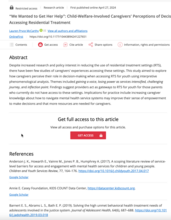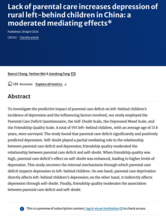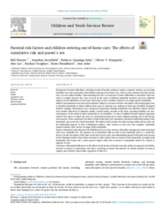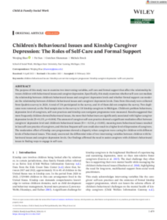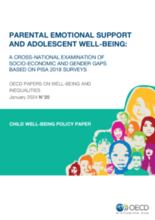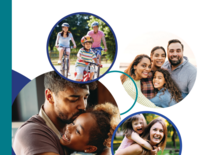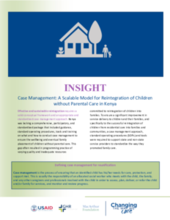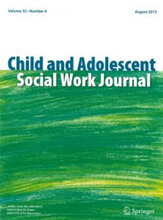Displaying 31 - 40 of 947
This webinar unpacks lessons learnt from successful parenting and caregiver interventions in lower-middle-income countries.
This U.S.-based study aimed to explore how caregivers perceive their role in decision-making when accessing residential treatment settings (RTS) for youth using interpretive phenomenological analysis.
This study uncovers the internal mechanisms through which parental care deficit impacts depression in left-behind children in China.
This retrospective, national-scale, observational e-cohort study of children entering care in Wales looked at the impact of cumulative risks of parental difficulties on the likelihood of care entry and the impact of the parent's sex.
The purpose of this U.S.-based study was to examine two intervening variables, self-care and formal support that affect the relationship between children with behavioural issues and caregiver depression.
A cross-national examination of socio-economic and gender gaps based on PISA 2018 surveys
This is a report about the Parental Rights in Prison Project (PRiP) based in Wales and England aimed at supporting incarcerated parents who wished to sustain their relationship with their children who are in the care of the local authority, care of family and significant others or adopted and to provide them with legal advice and support around their rights as parents.
This 2023/2024 Prevention Resource Guide offers critical information, including concrete examples of how grant recipients and other Federal or national agencies are taking bold actions to authentically engage with and support families.
To ensure a significant improvement in service delivery to children and their families, and specifically to the successful reintegration of children from residential care into families and communities, a case management approach, standard operating procedures (SOPs) and tools were required to support state and non-state service providers to standardize the way they promoted family care. This short insight document describes how the case management package was developed and rolled out.
This U.S.-based mixed-methods study explored foster parent satisfaction with intent to turnover and disrupt placement in 362 foster parents through regression analyses. It included foster parents in six mid-Southwestern states who participated in an online survey between June 2021 and January 2022.

